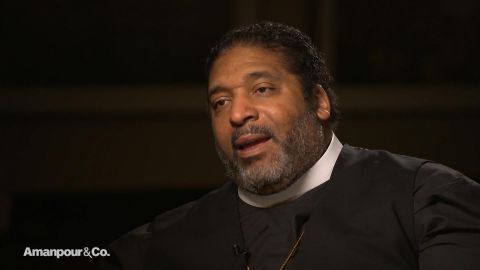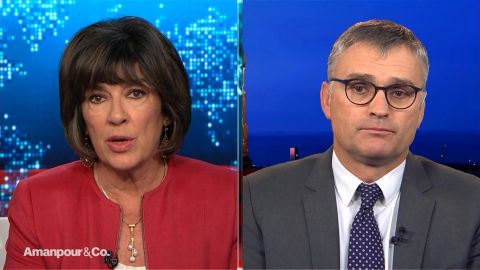Read Transcript EXPAND
CHRISTIANE AMANPOUR: Are we putting too much on Angela Merkel’s shoulders? Are we correct in thinking that for all these years she has held the line, held the center in a world that is shifting so sort of precipitously?
STEFAN KORNELIUS: Well, the further you get away from Germany the more you put on her shoulders and the more you limit European-German politics on that single woman. On the other side, yes, you are more than right, she is an extraordinary person and she’s so outstandingly different now in the time where nationalism and different leader types are evoked. So, basically, yes, this woman is holding a lot of things together. And since she announced that she would withdraw, even though it is only in three years’ time, probably earlier, but we have to assume that she could probably finish her term. Since she did that, yes, you really can feel how that power flows away from her, how she — how this unliberal forces are almost tubulating and basically getting rid of her.
AMANPOUR: So, you know, 2021 would be a next election. Now, she’s done four and she’s been elected. So, it’s very unlikely that she would have ever run again anyway. But the next meaningful one is in December when she is also going to step down as chairman of her party, the CDU. So, you sort of implied that the power is kind of leaking away from her. Will she be a lame duck chancellor even if she does continue to the end of her term?
KORNELIUS: Well, yes and no. The chairman party system, the chairman political system provides the party leader with quite some powers. And having both the party leadership and the chancellorship means ultimate power and giving away both while internally (ph) and stepping away from the party leadership that early will definitely weaken her. But on the other side, you cannot get rid of a chancellor basically by writing him off or her off. She is voted in her office. It is pretty difficult to get her out of office. The German constitution provides a lot of safeties for a stable government. We know from our historical experience that we shouldn’t really push aside governments or like other countries do. I mean, like Italy. Italy has a huge number of governments changing over time. So, this gives her some stability. And we probably will look at this news now in two, three months in a bit different — from a different angle and see that she’s even more liberated and that she could spend the accumulated capital, political capital, she amassed over the past years more freely over the past years or probably months she will remain in office.
About This Episode EXPAND
Christiane Amanpour interviews Reverend William Barber, author Stefan Kornelius and singer/songwriter Rosanne Cash. Alicia Menendez interviews actor and singer Mandy Patinkin.
LEARN MORE



